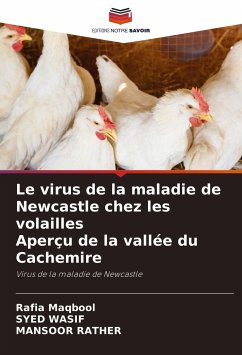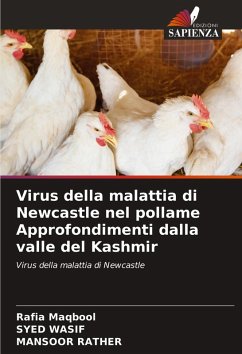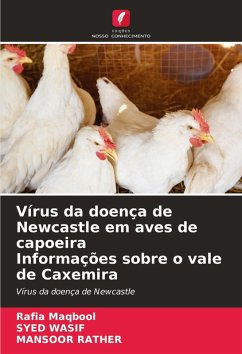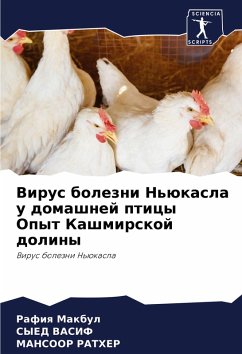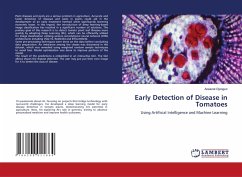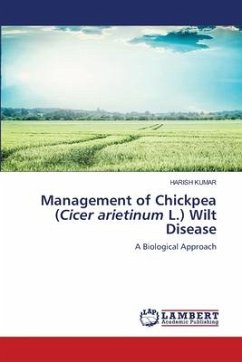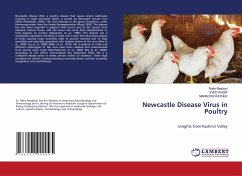
Newcastle Disease Virus in Poultry
Insights from Kashmir Valley
Versandkostenfrei!
Versandfertig in 6-10 Tagen
29,99 €
inkl. MwSt.

PAYBACK Punkte
15 °P sammeln!
Newcastle disease (ND), a poultry disease that causes severe outbreaks resulting in huge economic losses, is caused by Newcastle disease virus (NDV) (Alexander, 2003). The virus belongs to the genus Avulavirus, order Mononegavirales from the family Paramyxoviridae (Mayo 2002). The disease has also been reported in pigeons that occurs due to the spread from diseased chicken flocks, and can occur vice versa from domesticated or feral pigeons to poultry (Alexander et al., 1985). The disease has a worldwide prevalence including in India and is seen affecting many species of birds causing huge econ...
Newcastle disease (ND), a poultry disease that causes severe outbreaks resulting in huge economic losses, is caused by Newcastle disease virus (NDV) (Alexander, 2003). The virus belongs to the genus Avulavirus, order Mononegavirales from the family Paramyxoviridae (Mayo 2002). The disease has also been reported in pigeons that occurs due to the spread from diseased chicken flocks, and can occur vice versa from domesticated or feral pigeons to poultry (Alexander et al., 1985). The disease has a worldwide prevalence including in India and is seen affecting many species of birds causing huge economic loses to poultry industry due to high morbidity and mortality associated with virulent strains of the virus (Kim et al., 2008; Lee et al., 2008; Miller et al., 2010). ND is endemic in India and different pathotypes of the virus have been isolated and characterized from several avian hosts (Nanthakumar et al., 2000; Roy et al., 2000). According to the Office International des Epizooties (OIE), ND is a notifiable disease when it meets certain criteria of virulence. These high consequence strains, causing enormous economic losses, warrant a prompt recognition and confirmation.





